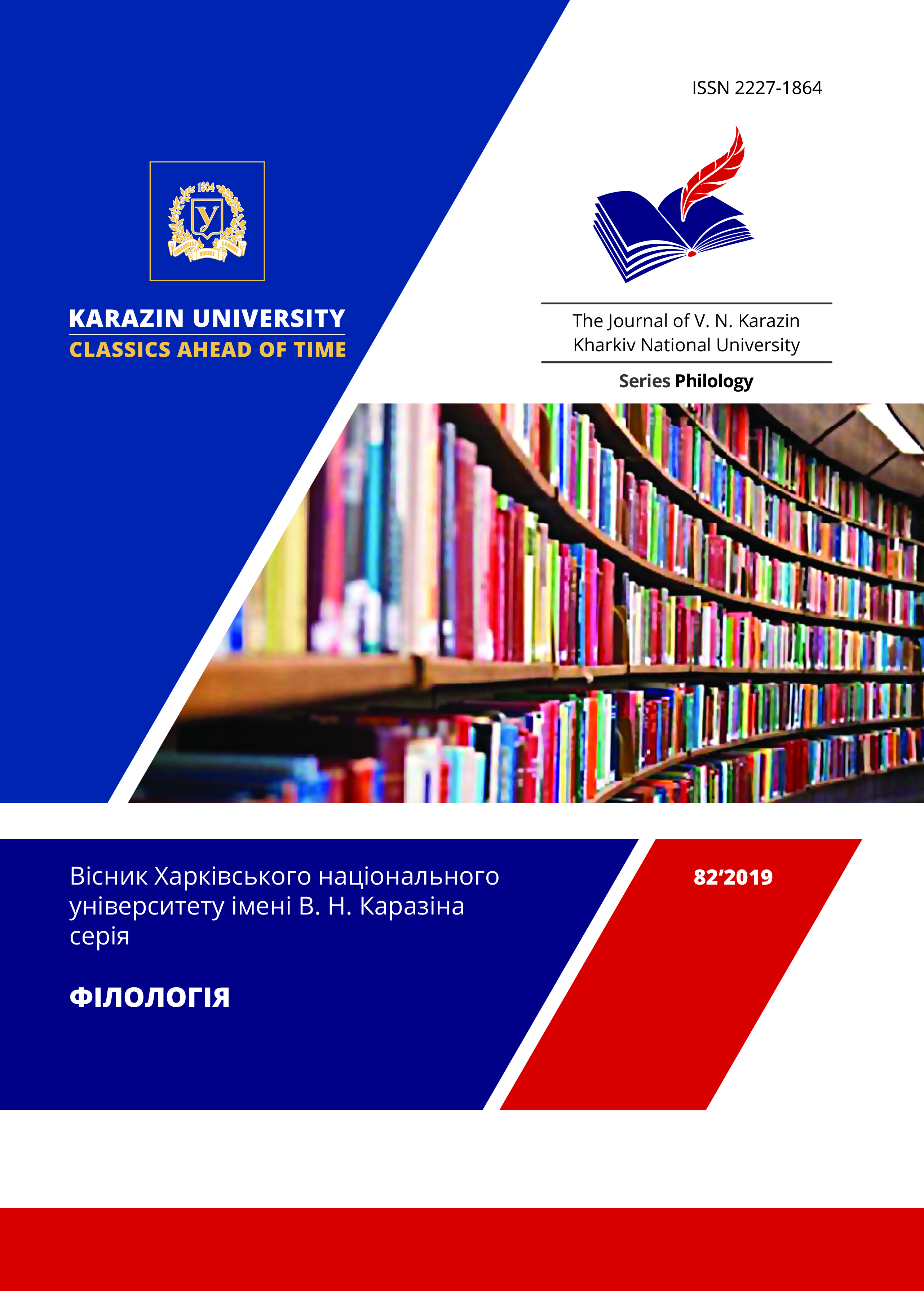N. Chernyshevsky as a character of the novel “Gift” by V. Nabokov: poetics and semantics of the image
Abstract
The article is devoted to the identification of the poetological and semantic features of the image of N. Chernyshevsky as a character of the novel “Gift” by V. Nabokov. An analysis of the latest scientific works devoted to various aspects of the interpretation of Nabokov’s novel has showed such understanding of the structure of the image of protagonist of the fourth chapter, in which the historical and biographical components are of particular importance. However, it seems to the author of this article that it should be considered as an element of the “second order” concerning to re-translators of the deep semantics of the image. N. Chernyshevsky, who appeared in Nabokov’s “Gift” in the status of a character of the artistic work, is an image devoid of any direct references concerning to his real prototype. For this reason, the author of the article considers it not as a self-sufficient semantic equivalent in the structure of the text, but as an immanent element of this structure, which exists exclusively in the other-being of an artifact. It is also shown in the article that in the image of N. Chernyshevsky are actualized those traits, that make it possible to correlate the character with the literary type of the “little man” in that typological realization that is found in the writings of Pushkin and Gogol. In the works of these authors, the “little man” appears in oppositional relations not with another character (a senior person), but with Fate itself, or rather, with irrational metaphysical forces. The plot of the fourth chapter of “Gift” is also constructed by Nabokov as the “history of misfortune” of an offended being, but it is fundamentally significant that the causes of this misfortune are in no way connected with the external circumstances of N. Chernyshevsky’s life. Happiness as a feeling of fullness of life, as an insight in the combination of its trifles the intent of mysterious forces, is unattainable for the “little people” of Pushkin, Gogol and Nabokov, who suffer from the narrowness of their “spiritual horizons”, which are containing only material, transient, earthly.
Downloads
References
Aleksandrov V. Nabokov i potustoronnost': metafizika, etika, estetika : per. s angl. N. A. Anastas'yeva. Sankt-Peterburg, 1999. 320 s.
Boyd B. Vladimir Nabokov: russkiye gody. Biografiya : per. s angl. Sankt-Peterburg, 2010. 696 s.
Krasheninnikov S. Simvolika «Zhizneopisaniya Chernyshevskogo» v romane V. V. Nabokova «Dar» // Russkaya rech'. 2013. № 5. S. 23–29.
Literaturnaya entsiklopediya terminov i ponyatiy / pod red. A. N. Nikolyukina. Moskva, 2001. 1600 stb.
Makhan'kov Ye. Na peresechenii Pushkinskoy i ulitsy Gogolya: retseptsiya tvorchestva russkikh klassikov v romane V. Nabokova «Dar» // Visn. Khark. nats. un-tu imeni V. N. Karazina. Ser. : Filologiya. 2016. Vyp. 75. S. 150–154.
Mlechko A. Igra, metatekst, trikster: parodiya v russkikh romanakh V. V. Nabokova. Volgograd, 2000. 188 s.
Nabokov V. Amerikanskiy period. Sobr. soch. v 5 t. T. 2 : per. s angl. Sankt-Peterburg, 2008. 672 s.
Nabokov V. Lektsii po zarubezhnoy literature : per. s angl. S. Antonova, I. Bernshteyn, G. Dashevskogo i dr. Sankt-Peterburg, 2010. 512 s.
Nabokov V. Russkiy period. Sobr. soch. v 5 t. T. 4. Sankt-Peterburg, 2002. 784 s.




